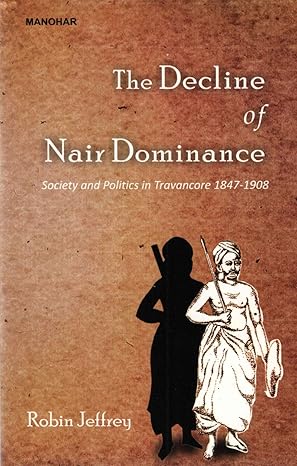The Decline of Nair Dominance: Society and Politics in Travancore 1847-1908
Availability :
In Stock
₹ 577.15
M.R.P.:₹ 595
You
Save: ₹17.85 (3.00% OFF)
(Inclusive
of all taxes)
Delivery:
₹ 50.00 Delivery charge
Author:
Robin Jeffrey
Publisher:
Manohar Publishers
ISBN-13:
9789350980347
Publishing Year:
2025
No. of Pages:
393
Weight:
482 g
Language:
English
Book Binding:
Paperback











